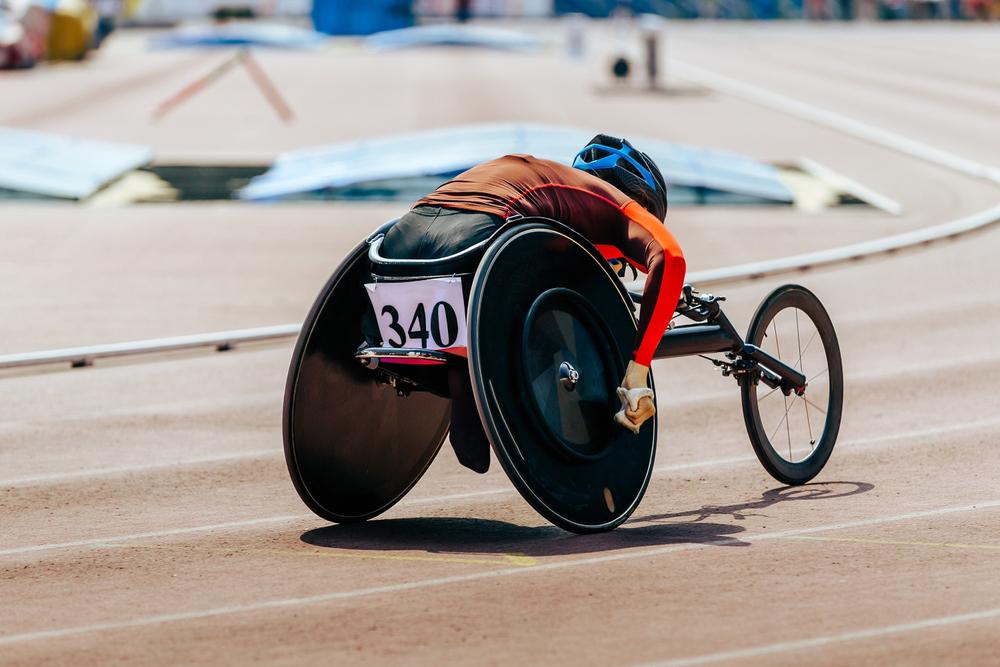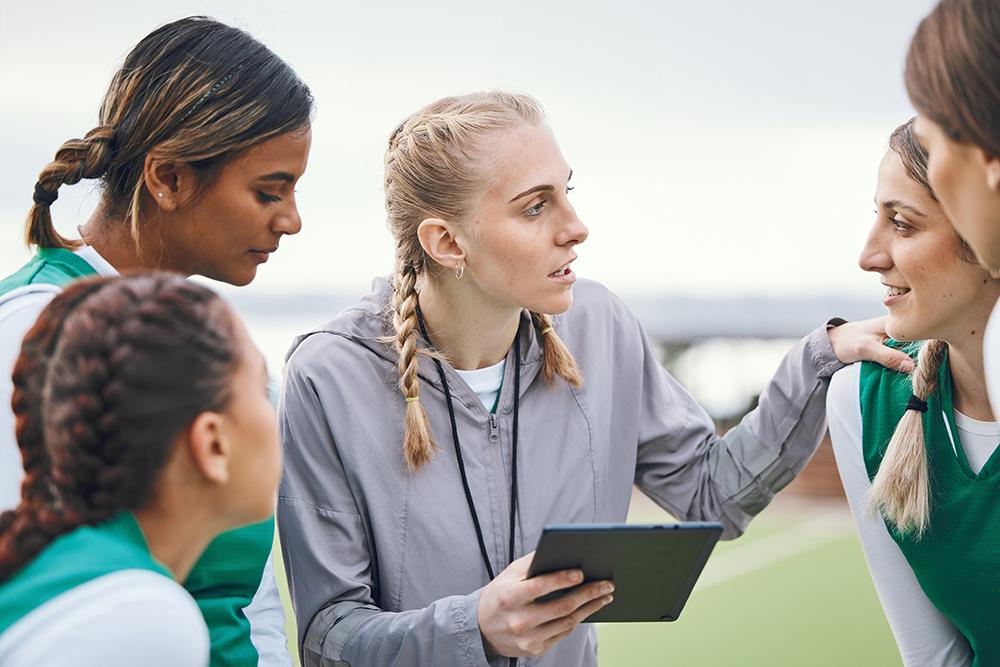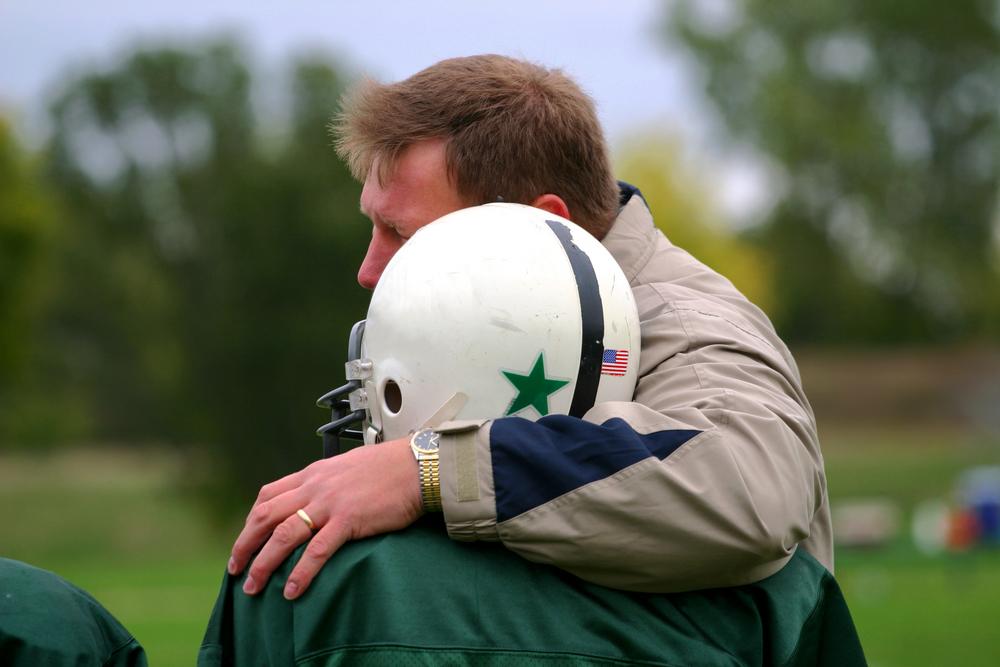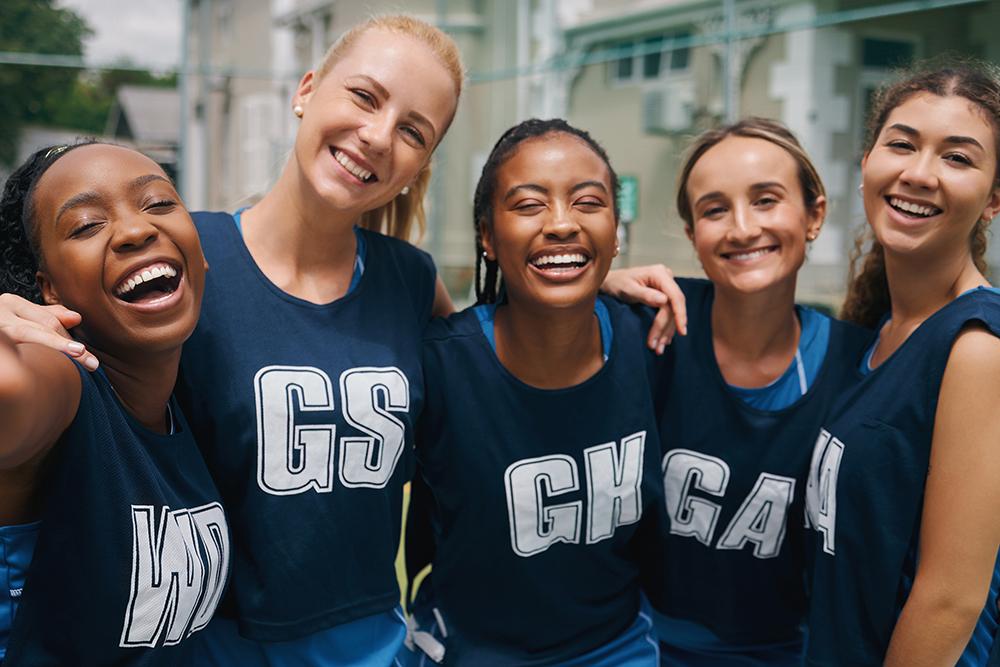 As an athlete, your circle of care – from friends to coaches – is extremely important to your physical wellbeing and your mental wellness. TrueSport Athlete Ambassador Abby Raymond had to learn the hard way how to create a strong circle around her at a time when everything seemed bleak. Here, she’s sharing her story of how a tough situation became an opportunity —and how that could only happen with the right support network.
As an athlete, your circle of care – from friends to coaches – is extremely important to your physical wellbeing and your mental wellness. TrueSport Athlete Ambassador Abby Raymond had to learn the hard way how to create a strong circle around her at a time when everything seemed bleak. Here, she’s sharing her story of how a tough situation became an opportunity —and how that could only happen with the right support network.
Be careful who you trust
“Do your research,” says Raymond. “Don’t just jump on an opportunity because it looks nice and shiny and fun and new.” She learned this the hard way when she was 14 years old and competing with Team USA as a weightlifter, at which point a family friend offered to sponsor her with their supplement company. “We made it extremely clear that I was in the testing pool so there were certain ingredients that I absolutely couldn’t have in my supplements, and it was extremely important that the supplements were clean,” she recalls. Unfortunately, the supplements were tainted, despite the assurances from the company. She soon tested positive for a banned substance and was suspended from sport.
She still believes that the supplement was unintentionally tainted during manufacturing, but learned a valuable lesson: Even the most well-intentioned people can make mistakes, and as an athlete, you’re the one who has to decide whether you’re willing to take that risk. The same can be true of well-meaning coaches that push training programs that aren’t right for your body or your fitness level. You should always feel comfortable asking for a second opinion, and if an opportunity makes you feel at all uncomfortable, don’t hesitate to say no.
Create a strong out-of-sport support network
For many athletes, you automatically have a community within sport thanks to your teammates or the people you train with in individual sports. But having a community outside of sport is important for all-around development and well-being. Raymond’s out-of-sport community is found in church, but you might find one in a youth center, a non-sport-related school club, or even just by creating stronger ties with family members or other friends.
Find a mentor (or two)
 “Having people in your life who affirm you in sport and all the other areas of your life is super important,” says Raymond. “For athletes, I feel like it’s great to have two kinds of mentors: A mentor who’s very involved with your sport or someone who’s been in your position before and knows a lot, and one who has nothing to do with your sport.” Having someone who’s involved in your sport but not directly involved in your training can be helpful as a set of objective eyes, while having someone outside of sport can be important for finding perspective and balance between your sport and everything else in your life.
“Having people in your life who affirm you in sport and all the other areas of your life is super important,” says Raymond. “For athletes, I feel like it’s great to have two kinds of mentors: A mentor who’s very involved with your sport or someone who’s been in your position before and knows a lot, and one who has nothing to do with your sport.” Having someone who’s involved in your sport but not directly involved in your training can be helpful as a set of objective eyes, while having someone outside of sport can be important for finding perspective and balance between your sport and everything else in your life.
Know who’s in your corner
For Raymond, a father who was highly involved in the sport and had a strong understanding of it was helpful, but so was having a mother who considers her primary role to be to offer emotional support. Having that blend of practical and emotional support as she struggled to process her positive doping test was critical: Her father was able to find a lawyer and test the supplement batch to confirm that her ingestion of the banned substance was unintentional. Her mother, meanwhile, was there to emotionally support her as she processed the positive test and wondered what the eventual outcome would be.
Work with experts
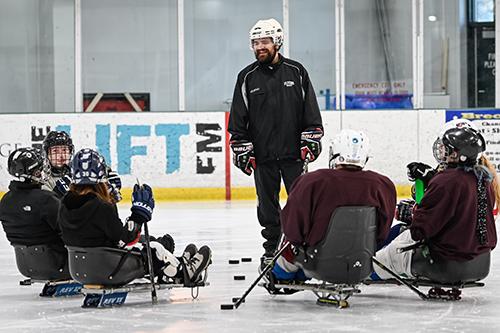 “In some seasons, I’ve worked very intensely with a dietitian to follow a macro program to either cut weight or to work on bulking or just fueling my body the right way,” Raymond says. In a sport like weightlifting, which is based on weight class, it’s important to have help to hit target weights in a healthy way, rather than trying to cut or bulk on your own. “It can be hard to be comfortable when you’re in a sport where your body is a machine and you need to meet certain criteria,” she adds.
“In some seasons, I’ve worked very intensely with a dietitian to follow a macro program to either cut weight or to work on bulking or just fueling my body the right way,” Raymond says. In a sport like weightlifting, which is based on weight class, it’s important to have help to hit target weights in a healthy way, rather than trying to cut or bulk on your own. “It can be hard to be comfortable when you’re in a sport where your body is a machine and you need to meet certain criteria,” she adds.
“Now, I’m really comfortable with who I am and what I do, but there is a lot of focus on weight and that can be hard,” she says. “Over the past seven years, I’ve gone up quite a few weight classes as I’ve gotten older. I’ve had people around who helped me understand that it makes sense for me to go up a class rather than fighting to stay in the lighter class because it’s better for my long-term development and health. It’s not always easy, especially being a young girl in high school, but having those experts who really care about my long-term development rather than the quick gains has been so helpful. It’s a problem in weightlifting specifically for youth and junior athletes: Often, coaches try to keep them as light as possible so they can excel as a junior, but that won’t serve them as they move into the senior classes.”
Find a coach you can trust
If you’re hoping to take your sport to the next level (Raymond has had Olympic dreams since she was a toddler), having the right coach is critically important. That may be your school’s designated coach for that sport, but you may also need to look outside of school if you don’t feel as though you’re getting the support that you need. A coach should also be there to support you in tough times, not just there to celebrate the wins. “My coach being supportive during that really hard time was so important to me,” Raymond says.
________________________
Takeaway
Who you surround yourself with, both in sport and outside of it, can make dealing with adversity and hard situations much better or much worse. Create a circle of people who you trust to have your best interests at heart, people who you can talk to about anything, and people who are equipped to help you deal with hard situations.
